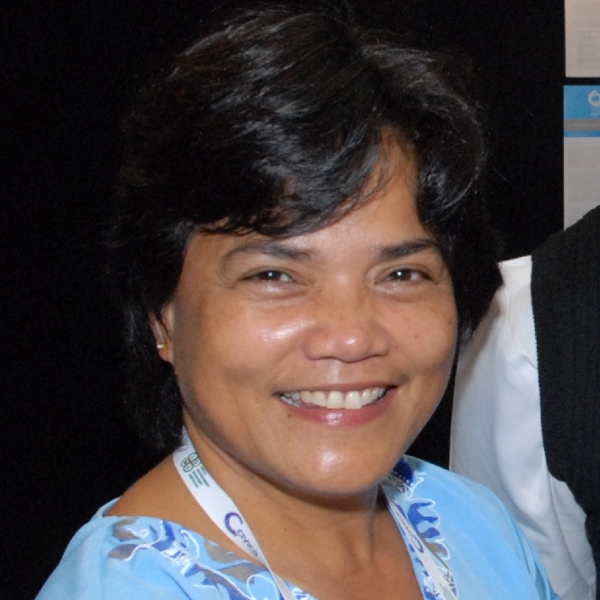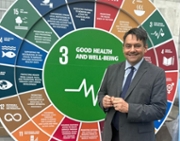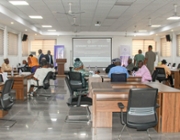A view from CLGF in the Pacific

06 August 2020
Karibaiti Taoaba became Regional Director in 2009 and has overall responsibility for CLGF Pacific in achieving its strategic vision and outcomes, including planning, resourcing and staffing. Before this, she worked for the Government of Kiribati for 18 years, serving as Permanent Secretary for three ministries. During her time with the Ministry of Internal and Social Affairs, she had oversight for the overall implementation of policies and administration in local government support services to 22 island councils and three urban councils, decentralisation and rural development for all island councils in Kiribati.
"From my position as Manager of the CLGF Pacific office, I believe that local government should be playing a much stronger role, not just to help the communities affected by COVID-19 and natural disasters, such as the recent cyclone Harold, but also to address the root causes of the many problems that affect all the countries around the Commonwealth. Access to better data, and continuing to share good practice and technical resources across regions, should be at the heart of this work.
In the Pacific, only central government is managing COVID-19 with very little assistance from local government. This is because local government does not have sufficient resources, skills and knowledge to deal with the issue. Because central government is more removed from the people and local communities, it is more difficult and costly for this sphere of government to deal efficiently and cost effectively with issues like COVID-19. I believe that, at this time, it is even more important for CLGF and its members in the Pacific to raise the profile of local government to emphasise the role it plays, beyond local politics and service delivery; and to be recognised as a legitimate actor and partner in national and regional development and cooperation.
Reinforcing local government role
Perhaps we could focus more on using councils to shape the character and ability of our communities to ensure they have the understanding, knowledge and skills to contribute to national development; and ensure that our communities are resilient to the shocks that they face. I would like to see more support for communities to get involved in national activities, by creating an environment that is conducive to contributing effectively to national and regional issues and commitments. This is in addition to other areas where local government can, and should, be reinforcing the national agenda towards resilience, such as local economic development, gender and inclusion, dealing with the effects of climate change and disaster risk management etc.
With regard to Communications, councils need reliable smart ICT systems that can be used by the community; and up-to-date data on constituents, including contact details. We need more small health clinics that are easily accessible to people; and radio stations, funded and maintained by councils. Health-wise, we need to provide more hand basins and places where people can clean their hands and wash if necessary; and with good quality, running water. Billboards to display critical messages; live concerts and plays to stimulate discussion about key issues; and the use of traditional systems to understand and deal with issues
Protecting the vulnerable
We need to focus on ways to ensure local government can support the homeless, whether that might include providing greater access to an income, for example giving them seeds and gardening spaces. More parks and open spaces, planned and maintained by local government, would enable people to enjoy leisure time and exercise, taking into account the needs of the disabled, elderly and young people. Our existing housing needs to have access to clean water for hygiene purposes. As a utility, water must be affordable.
Building connections and working collaboratively
Finally, and on a strategic-level partnerships are critical and local government must maintain and continue to build connections with all of its stakeholders, including the business community, traditional leaders, faith organisations and, more so, with the central government and NGOs, building closer collaboration and cooperation. Let us ensure that we work to build a cooperative relationship between local and central government and ensure that we keep citizens at the heart of our development. Local government is the closest part of government to our citizens and as we strive towards the SDGs and the commitment to leave no one behind, our local governments could and should be playing a more central role."
CLGF is currently working with its members to build capacity at the local level, and to develop new projects to support the central role of local government in COVID-19 recovery activities.
Back to News





